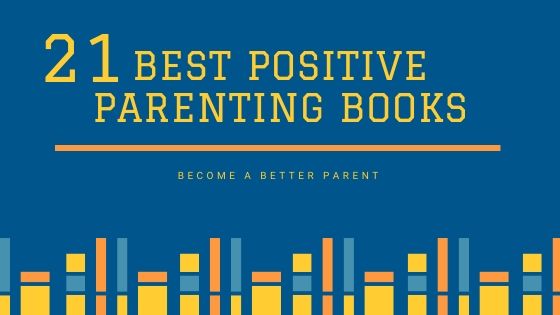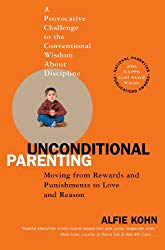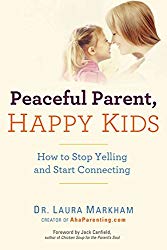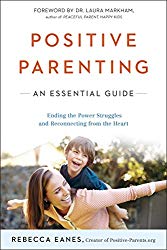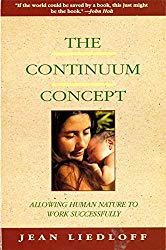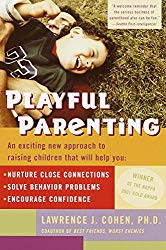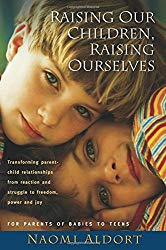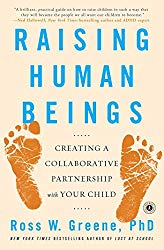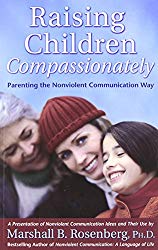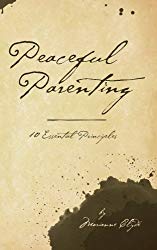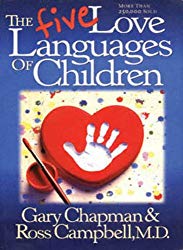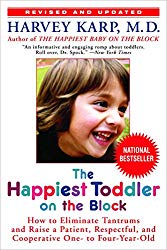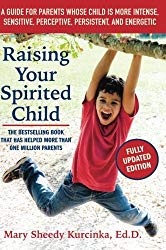If you are reading books to motivate yourself to be a better parent you will need the best positive parenting books.
And of course there are 175,951,681,351,684,201,871,014 books to choose from for parenting!
But lucky you are. I had read all of them. (Well, mostly!) Which are the best books for successful parenting? Well let’s take a look!
All links are affiliate links on this page, BTW.
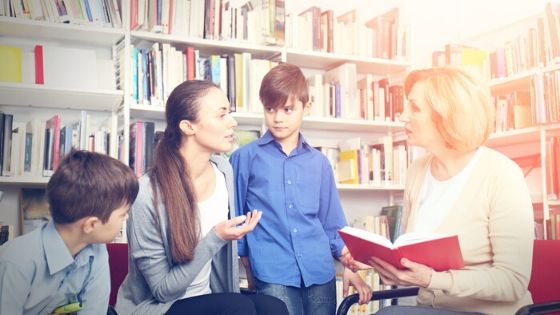
21 Of The Best Positive Parenting Books
Unconditional Parenting:
Alfie Kohn’s shift from Rewards and Punishments to Love and Reason is undoubtedly the optimistic book for parenting that has had the most effect on my own parenting. At the start of the book, Kohn talks about how almost all parenting advice starts by asking the question “How can we get children to do what we say?”And the suggestion then is how to get them to do it. I once saw Kohn speak, and he asked the audience what kind of people we wanted our children to be. We mentioned this kind of things as compassionate, creative, successful, innovative, generous, smart. Nobody has discussed anything like obedience, compliance, docility, conformity or submissiveness.
And yet so much advice on parenting is geared simply to getting children to do what we say. If you want to move away from punitive, judgmental parenting and towards a philosophy of unconditional love and support for your children, unconditional parenting is the book for you. Another great Kohn book is Punished By Rewards: The Trouble with Gold Stars, Incentive Programs, A’s, Praise and Other Bribes, if you want to understand the research showing the negative effects of praise and rewards.
The Gentle Parent:
Positive, practical, efficient, discipline by L.R. Knost. If you have spent some time on positive parenting or gentle parenting pages on Facebook, you’ve probably seen quotes from L.R. Knost: Knost. She’s a mother of six with so much wisdom to share and an incredible gentle soul. She’s one of the best positive parenting proponents, and I’m so glad that she’s got a book to add to the best positive parenting book list! Her book provides you with the specifics of the three C’s of gentle discipline-communication, connection, and cooperation.
This book is incredibly respectful towards kids and supports parents who are trying to take a new path. She teaches you how to give up punishment and build a home filled with love and happiness. This book will be quick, easy to read, calming and reassuring.
Peaceful Parent, Happy Kids:
Dr Laura Markham’s How to Stop Yelling and Start Connecting is a book which I highly recommend to everyone. You can get lots of information from the website of Dr Markham. Parenting is an excellent addition to your parenting influences, and this book is from her. To show you how to be a positive parent, she uses the latest research and her clinical experience. Power struggles, tantrums, punishments, and never-ending conflict should not be what your life as a parent is all about. It can be about communication, comprehension, and happiness instead.
Any challenges you have in practicing successful parenting, you will find practical advice and support here. The step-by-step instructions, vocabulary examples to use and tips for understanding yourself and your child will immediately help you see an improvement in the quality of your interactions with your child. Dr. Markham blends expertly the ideas and knowledge that you need to make the mental shift to meaningful parenting with the practical ways you need to make lasting progress. If you have more than one child, she also has another of the best positive books about parenting, Peaceful Mom, Happy Siblings: How to Stop the Fighting and Create Friends for Life. If you’re struggling with sibling problems, this book will help you find the support you need.
Positive Parenting:
Rebecca Eanes ‘ An Important Guide is a comprehensive guide for building a bond with your children. Eanes covers working with your infants on your own emotional baggage, each different age and stage, curbing your yelling, ending power struggles and getting out of the cycles that keep you and your child in conflict. Her stories and explanations are down-to-earth and easy to read as a mom, not as an expert. Dr Markham (from this list’s previous book!) says the Following:
“Positive Parenting shows parents how to remain connected while still being the leader every child needs….Say goodbye to regrets and heartache, and hello to peace and connection. Your beautiful journey begins here.”
Eanes is also the author of Positive Parenting in Action’s two best positive parenting books: The How – To Guide to Bringing Positive Parenting Values into Early Childhood Practice and The Newbie’s Guide to Positive Parenting.
The Continuum Concept:
In Search Of Happiness Lost by Jean Liedloff is a quirky little novel about human development written by a naive woman who went into the jungle, met a primitive culture and came out with a whole new understanding of childcare and Western culture. She speaks about parenting attachment from before parenting the attachment became a term that we all know. While I had to include this in the best positive books on parenting due to how much it was shaped by my own experience, it may not be right for everyone. This book is now one of the must use for people who are not yet parents or who have babies. The understandings that you gain from this book, however, can help you heal how you were parented or recover from beginning to parent in a way which was not working for you and your child.
Playful Parenting:
An Exciting New Approach to Raising Children That Will Help You Nurture Strong Connections, Lawrence J. Cohen Solve Behavior Problems and Encourage Confidence. It has a simple concept: children need to play and this book is the primary on tuning in for playing with your child. Knowing the need for your child to play and becoming a playful parent is a crucial part of minimizing many tensions with parenting. Embracing play has changed my ability to deal with my son in difficult moments. The sooner I let in my mind a playful attitude, the better I’m at reacting to things. And the more often I engage with him in playing, the better is our relationship. This book gives you all the details, tons of great games to play, and all the ways you can connect with your child through play.
Raising Our Children, Raising Ourselves
Raising Our Children, Raising Ourselves by Naomi Aldort is about “transforming relationships between parents and children from reaction and struggle into independence, strength and joy.” Well, it does sound good! Aldort wants to help you give up trying to influence your child, then learning to accept your child and being with them in a way that will bring out their potential. The book is full of real life stories, and the concept of Aldort’s “SALVE” is a valuable implementation of certain NVC concepts. The style of writing is repetitive, gentle and near meditative.
Raising Human Beings:
Creating a Collaborative Relationship with Your Child by Ross W. Greene PhD. I recently picked this one up and found some useful tips and ways to think about interacting with your child. Greene is the author of The Explosive Child, which is highly recommended, and Raising Human Beings continues its work of helping you understand your child and solve problems with them. He sees the parenting relationship as one where you can work with your child collaboratively to help bring out the best in them, no matter with what situation you begin.
Raising Children Compassionately:
Marshall B. Rosenberg Parenting the Nonviolent Communication Way. I constantly recommend Rosenberg’s NVC book. This one is specifically geared towards parents. It’s all about building a friendship to find empathy, compassion, communication, common ground, understanding, and a genuine love that can flow freely between you through the conflict. NVC is an integral part of my own parenting. I honestly don’t know where without him I would be. Every day I “use” it, but it’s not just a trick. It has really enabled me to connect with my son when that would normally be difficult. Nonviolent communication is transformative. I absolutely recommend this to every parent.
Peaceful Parenting:
10 Marianne Clyde’s Essential Principles is a simple, gentle guide through 10 ideas that will help your family to be more respectful to each other and a more peaceful place for all to live together. Marianne Clyde is a licensed marriage and family therapist and she brings her experience into this book with her own children and grandchildren. It’s not a set of strategies but it’s a step-by-step method that you can go through to better understand yourself and your family. You will learn how to make your home a safe place for your child, learn how to cope with confidence conflicts, learn to understand what’s behind the behavior of your child and learn how to see them positively. The book helps you to make the paradigm shifts you need for lasting peace when you’re looking for a better parenting.
Simplicity Parenting:
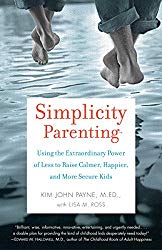
Using Kim John Payne’s Extraordinary Power of Less to Raise Calmer, Happier, and More Happy Kids is about how modern life sometimes does not embrace what kids need. This book walks you through cutting down on life’s clutter–toys, books, clutter, busyness, tight schedules, media, and involvement with parents. It is based on a model of Waldorf education, which guides you through the creation of rhythms and routines to promote calm and trust. I don’t agree with everything in this book (for example, I don’t limit access to “screen time”). However, I think many parents will be encouraged and supported by the ideas in this book to soothe their style of living. One reviewer said the book “has made me a parent calmer, happier, yet more efficient and conscious,” and that’s exactly what the best positive books on parenting do!
The Five Love Languages of Children by Gary Chapman:
This one may seem a strange choice for a list of the best positive books on parenting, but expressing love for your child is a rock of positive parenting. It is not just that you express love, it is important that your child receives the message. This book helps you make sure it happens. The idea behind love languages is that they all have a different way of giving and receiving love they prefer. Some people, for instance, really appreciate affirmation words and some people are more into service acts. If you and a loved one have different love languages, as you try to express your feelings, it is possible to unintentionally talk past each other. Books from Chapman help you discover your own language and the language of your loved ones. Specifically these books are about doing that work with your children. Those books can help you understand the language of love for your child and will be able to communicate affection and other positive feelings to them in a way that they can appreciate profoundly.
The Happiest Toddler on the Block:
How to Eliminate Tantrums and Raise Harvey Karp to Four-Year-Old as a Patient, Respectful, and Cooperative One. I’ll confess, this is not my favorite book. I don’t really like the Karp theme. He is overly simplistic and is not using appropriate language for children. Nevertheless, I’ve included it on the best list of positve parenting books because it’s a very popular, mainstream book that introduced one very important idea to many parents. That idea is that little children communicate differently from adults, and if you want to connect and empathize with them it takes a different kind of communication from you. I think it’s like “NVC for babies.” To understand the ends and outs of sharing empathy, you can read Nonviolent Communication (NVC) Then if you need help translating empathy into the toddler-ese, what you need is The Happiest Toddler on the Block. There are plenty of examples of how to get back to them expressing the emotions of a child. Other techniques in this book may not align with my positive parenting ideals, but if it helps you empathize with your kid, the book might be worth it.
Raising Your Spirited Child by Mary Sheedy Kurcinka
Its purpose is to apply positive parenting to children who are strong-willed, “difficult,” sensitive, intense and energetic. A bit of a spoiler here: spirited children need the same connection taught in the other best positive books on parenting; they just take more time, energy and investment from you. That can be hard to listen to. The book helps you to hear that from someone who knows what you are going through and can help you break it down. Why is your kid acting this way? What to do to stop meltdowns? When you are at the end of your line, how can you cope? This book understands you, your child and the situation you are in. There are tips on how to keep your child calm, handle meltdowns, talk about feelings, constructive suggestions on discipline, and strategies to help your child become more resilient. One reviewer said: “After a very bad weekend with my daughter I began reading this book with reluctance. I had previously read several books but I was trying to find a way to communicate with my daughter who worked for me and her. I was in tears straight away. It was as if they had specifically written about her on this book. I have felt less of a failure. I found that many spirited children’s mommies sound like me, and probably don’t think about it. I knew that if I wanted to become a better parent to my daughter I needed to change my attitude. I can’t give a more positive review of that novel. Ever my relationship with my daughter has improved!!!!!!!
Marcy Axness ‘ Raising the Next Generation of Peacemakers is written from the perspective of Waldorf education, and will function with parents seeking a more holistic approach to parenting. Parenting for Peace provides seven guidelines for raising children to be inclined toward peace, and offers overviews of scientific research. It’s a very long book. You may not want to read it all in one go, but instead see it as a reference book or a companion book that you will pick up over time here and there. Axness brings together her own backgrounds in parenting and therapy, as well as insights from psychology, theology, neuroscience, the area of early human development. She deals with issues such as the quality of time spent with your children, how children respond to stress, how they develop their sense of identity, and how to create communication and interaction. Mothering’s Peggy O’Mara said this on the book: “Dr. Axness has distilled compelling evidence from the fields of parenting attachment, preconception and perception studies into a succinct, motivating and optimistic book on what we as parents really want to do: raise peaceful people. Parenting for peace provides a roadmap for us.’
Finally, i hope that you find the peace within your child and make them to act and behave as the way you always wanted to white this list of 21 Of The Best Positive Parenting Books suggestions.




